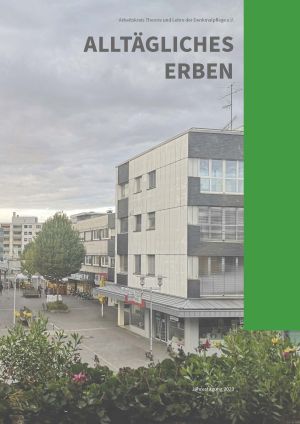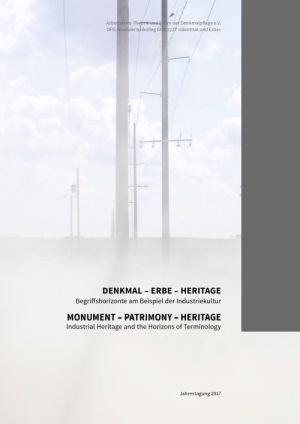Maybaum, Georg
Alltägliches Erben
When considering historical cities, monuments and architectural heritage, a large part of the building stock is left out – marginalized as too ordinary or mundane. It often seems as if only “the highlights" make it into the art historical and preservationist canon. The conference volume ALLTÄGLICHES ERBEN therefore deals with fundamental questions about the perception, appreciation and value of “everyday architecture”. In different perspectives, international, historical, and theoretical backgrounds of the everyday are illuminated, building tasks and challenges of monument preservation are discussed.
Denkmal – Erbe – Heritage: Begriffshorizonte am Beispiel der Industriekultur
This Volume offers two languages (german/english)
If “Sharing Heritage” is to be taken seriously, then it must have consequences for the assessment of value – in Europe, but also beyond: in place of the more exclusionary “World Heritage”, which tends to foreground each country's own, often nationally-defined achievements and merits, we should strive toward the creation of a “Global Heritage,” one capable of building bridges on the basis of universal values, thereby bringing the world’s people closer together as a global community with a common destiny.
The 2017 Annual Meeting of the Working Group on Theory and Education in Heritage Conservation on the topic “Monument – Patrimony – Heritage” at the TU Berlin was at the same time the first Annual Meeting of the Research Training Group 2227 “Identity and Heritage” (GRK 2227), funded by the DFG. A cooperation between the two was particularly opportune, as the Working Group had decided on Berlin as the location of the annual meeting and, in view of the motto “Sharing Heritage” of the European Cultural Heritage Year 2018, to dedicate it to a discussion of monument and heritage terminology, while the Research Training Group, with seats in Berlin and Weimar, had been launched to address such questions and a number of colleagues are active in both bodies.








